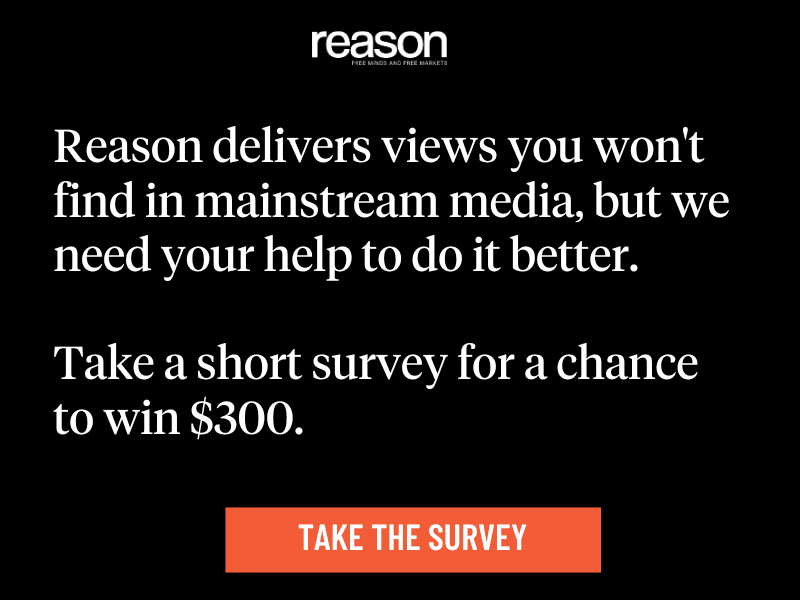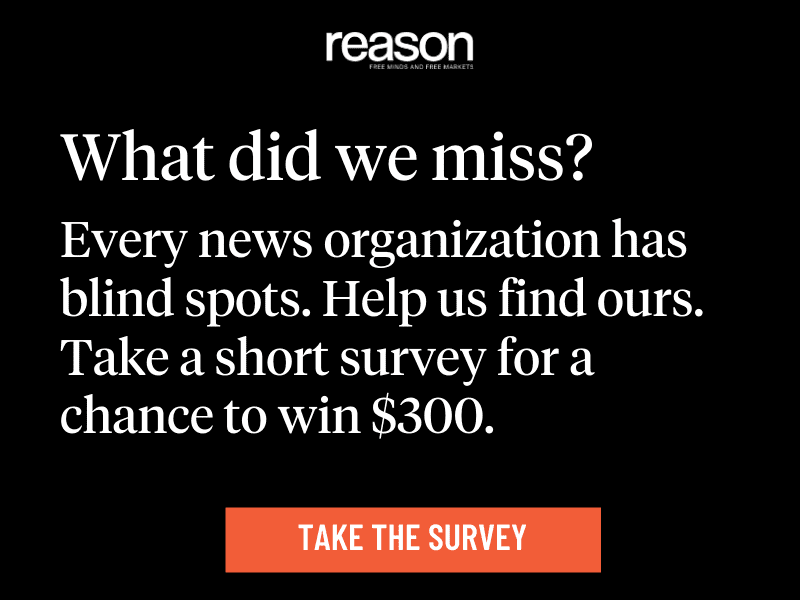Guns, Code, and Freedom
Cody Wilson on his war against power, the irreversible course of the 3D-printed gun, and America's Weimar moment

Gun control is not dead," says Cody Wilson. "Gun control is undead. We just keep killing it but it keeps coming back." Wilson, a crypto-anarchist and serial troublemaker, launched the age of the digital gun in 2013 when he published files showing how to make the Liberator, a 3D-printed pistol. It set off a panic in the media and in anti-gun political circles.
By late 2014, his company, Defense Distributed, had raised enough capital to begin manufacturing the Ghost Gunner, a miniature computer numerical control (CNC) mill designed to take an "80 percent lower" for an AR-15 and turn it into a legal, untraceable, fully functioning metal firearm. (While the 3D-printing process is additive, creating objects out of soft material such as plastics, milling is subtractive, cutting away material from an existing structure, and can be done to both plastics and metals.)
For the uninitiated, the Ghost Gunner's purpose takes some unpacking. A lower receiver is the part generally considered by the Bureau of Alcohol, Tobacco, Firearms, and Explosives (ATF) to be the "firearm," whether other components are present or not. It is also the part that must be stamped with a serial number when produced by a commercial manufacturer.
So-called 80 percent lowers (or "80 percent frames") are, as the name suggests, only four-fifths complete. As a result, they're not firearms in a legal sense. Anyone can purchase an 80 percent lower and then use his own tools to do the remaining mill work, turning the object into a working weapon. It is perfectly licit in the U.S. to make a gun this way; outside of California, it does not need to be registered or serialized.
For four years, Wilson has been embroiled in a legal battle over his work. But it's not the ATF he's fighting—it's the State Department. Shortly after publication of the Liberator instructions, the agency forced Defense Distributed to remove those files from its website, citing violations of the International Traffic in Arms Regulations (ITAR).
In 2015, joined by the Second Amendment Foundation and the legendary attorney Alan Gura, Wilson challenged the State Department's order on First, Second, and Fifth Amendment grounds. They later petitioned the Supreme Court for a temporary injunction that would null the take-down order until their lawsuit is resolved. In January, the high court declined to hear the case, sending it back to a lower court in Texas to be argued on the merits.
Despite the ongoing legal skirmishing, Defense Distributed in late 2017 released new files allowing the Ghost Gunner to mill handgun frames in addition to rifles. In December, Reason's Mark McDaniel spoke with Wilson about the future of gun control, how a weapon can be speech, and where Western liberal decadence is taking us.
Reason: How do the new Ghost Gunner files differ from what you've done before?
Cody Wilson: All handguns will eventually be available to people to produce for themselves, to complete from 80 percent, and to do in the privacy of their own homes.
On October 1 we published a new set of files for handguns. Our mill can do AR-15 receivers and .308 receivers, but proceeding into this new chapter of handgun finishing, the 1911 and the Glock are our inaugural files.
This is another dimension of doing Second Amendment work for yourself, because the handgun is concealable, right? It's a different conversation than just making rifles.
Besides its concealability, what makes the handgun fundamentally different from the AR?
A lot of people are unfamiliar with rifle culture, the old American rifleman idea. A lot of people living in an urban setting like D.C. wouldn't consider slinging an AR-15 on their back. But they would at least think about whether they wanted to have a handgun concealed and made without anyone else's knowledge. This is a question that you ask yourself. And so it's kind of a temptation, an invitation to discourse if you will.
But legally, it's more interesting to me, because the handgun is at the center of what was protected in the [2008] Heller decision. Whereas AR-15s may not ever be backed up by the Supreme Court, there's no way of getting around, right now, the protections that the Supreme Court gave to the handgun.
How are the courts approaching this question?
Well, I'm not an appellate lawyer, but the main controversy is whether the ARs meet the test developed in Heller. We've seen many courts now be like, "Of course assault weapons aren't protected by the Second Amendment," when the original controversy was, "Maybe the Supreme Court won't approve of handguns because they're not militia weapons."
The vocabulary of the Second Amendment in these cases is reversed, because from an actual philosophical standpoint, the basis of the Second Amendment is about access to military-grade weapons—freeholders having access to military-grade arms for purposes of resistance. But the Supreme Court has defined the right to be more about home protection, self-protection, concealability, or carrying a weapon.
Have you received major pushback on your release of handgun files from either the federal government or anti-gun organizations?

I'll tell you something, man: The more and more we proceed into the actuality of this world we've always been suggesting—that the internet will serve you guns and you will download them—the less and less there's been actual resistance. It's just kind of a fait accompli. I hate to say, like, "OK, job done." Obviously that's not the case. We're in a large federal lawsuit against the State Department right now. But that extends back to 2013, when a lot of this was more abstract. Now I can ship gun machines that can help you crank out 1911s in your kitchen all day long, and no one has anything to say about it. Because what is there to say about it?
Handguns are used in more murders across the U.S. than anything else. How do you feel about that?
To your point, if there's a gun problem in this country, it's located around the handgun. That's the center of gun crime. But the paradoxical thing is that [handguns are] still considered the core of the Second Amendment right now.
So is gun control dead?
Gun control can never die, because it lives in the hearts of men. No, gun control is not dead. Gun control is undead. We just keep killing it but it keeps coming back.
But recently there's been very little pushback. Post-Vegas, post–San Antonio—why do you think the reaction has changed since the initial media psychotic breakdown in 2013?
Well, 2013's media event was not a breakdown. It was a concerted push. But since Trump won and there are Republican majorities in Congress, it does not move the needle to yell about guns. There was the Orlando nightclub shooting during the campaign, and barring The New York Times' relatively unique front-page editorial on "We should ban guns," most people are just not spending the effort. They know that it's not worth it to fight for it right now. They have to wait for majorities in Congress. People [calling for gun control] are just signaling. It's an understanding of the reality of power.
So is the answer to just print as many guns as possible in the meantime?
That is the method right now. I was convinced Hillary Clinton would win. In my heart of hearts I thought we had very little time to prepare for things. Of course, it still takes time, even if Hillary wins, to appoint her Supreme Court justices and prosecutors and stuff.
[Now] what I see is a couple of years to do a lot of work while major appointments in the government aren't filled. This is good. This is time for us to make a lot of ground up. So I'm trying to take as much of the harvest as I can.
What's your next step?
A lot of what we do revolves around the facts on the ground. Is there going to be relief in my case? Is there not going to be relief in my case? These two things really affect my strategy, and I have answers for both things. But I'm never just going to say what's going to happen. I'm going to try to do it, and try to already be there before anyone can stop me.
Now, I do like to cast brave words before I do things and say, "This is what I'm going to do. Please try to stop me." And no one's been quite able to yet. But as you can imagine, the words of this company, Defense Distributed—I like to prove those words out.
What issues are at hand with your court case? What does the gun-printing community have on the line?
A lot of people think this is a Second Amendment case, and I can see why. But really it's a First Amendment case. It's about a statute that restricts various forms of speech based on their content. ITAR is basically looking at something that you're going to say and giving government the authority to evaluate it and approve it before you're allowed to say it.
And why is a 3D-printed gun speech?
I'm not saying guns are speech. What we developed and shared online was not the gun, it was the files that could create the gun. The pieces of software that could be used. Sharing that software was a political speech act, and because it can be changed and evaluated and understood by humans, the software itself is speech.
What results from either a win or a loss in the courts?
Well, let's be realistic. No one's stopping what they're doing because of my case. You can go to plenty of websites right now—GrabCAD, lots of big public sites, not pirate sites—that have tons of gun files. If anything, it's like nothing's changed except the fact that we weren't as productive a company in the years since. So all the gun-printing groups besides ours continued to do their work. They're just more limited because they're not as capable.
I notice waning interest on the gun-printing forums.
There's waning interest because the technical development hasn't proceeded from where it was in 2014. There's two reasons: Commercial 3D printing has stalled in terms of the available materials and affordability. And real engineering talent isn't really participating. You've got a certain kind of gun enthusiast, machine-shop enthusiast. But you need companies like mine that are willing to bridge the gap between the hobbyist and the professional level. And unfortunately we're embroiled in our own stuff.
I've printed stuff, man, that takes it to a level you're not quite ready for. But I'm not able to share it and make use of it the way I want. In the meantime, these other groups can't quite catch up. They don't have the capital, they don't have the engineering, they're only doing it part-time. So they stick to the same track from a few years ago, and that's fine.
In a broad sense, what makes the stuff you've designed different from these guys? Is it materials?
Yeah, it's materials. These guys don't have access to Markforged technology. They don't have access to the Onyx material, for example. Engineering nylon with carbon fiber, Kevlar, fiberglass—they haven't really worked with this stuff yet. Maybe they've done some sintering here and there. But even in our earliest days, when we were just beginning and helping to foster some of these groups, we were doing [stereolithography] printing. We were doing epoxies, acrylics, all the different types of [fused deposition modeling], a little bit of ceramic. I mean, you have to be more than a tinkerer. You have to assume it as an identity and bring in the capital. And it's OK these people want to do it part-time. But, you know, part-time vision, part-time results.
"Now I can ship gun machines that can help you crank out 1911s in your kitchen all day long, and no one has anything to say about it."
So who is working on your case?
Our lead appellate attorney is Alan Gura, and he's been with us for pretty much the whole time. From the earliest days of me getting into trouble. The Second Amendment Foundation is the co-plaintiff. Alan Gottlieb, I'm grateful to have his help. We have Josh Blackman and we have Matthew Goldstein, my export attorney, who I trust greatly. We have Fish & Richardson as local counsel—a good tech firm here in Austin. And we have others who assist, but that's the main team.
What's it like working with Alan Gura?
Expensive. No, it's great. Alan Gura's a true civil libertarian. He's got a great mind, and he's such a performer, too—a very capable appellate attorney. It's really a joy to watch him work. He believes in what he's doing. I didn't know about his practice when I was in law school, but it's really inspiring. For a young lawyer or someone who wants to become an appellate attorney, Alan Gura is a great example. But even so, it's cautionary. Because this is probably one of the best appellate attorneys you're going to find, and the federal courts still treat the Second Amendment like garbage. You know? So you can be the best, you can have dead-nuts perfect legal arguments, and they're still a bunch of dogs. That's how it is.
What's going on with the U.S. political climate right now, in your opinion? You push decentralized solutions in an increasingly centralized world. Where are we going and how do ideas like yours fit into things?
Our answer is a war on power itself, I think. It's done flamboyantly with guns, but the real battle is in payments, merchant acquisition services. We've seen in the past few months, especially after Charlottesville and these other events, that Google, Facebook, Apple—these companies, they really control the main flows of information and discourse and social exchange. And they can decide, at will, who isn't able to participate. I swear to God, less than an hour ago I just lost two PayPal accounts. Just, bam, like that. They can make that call. They froze 900 bucks and I have 1,700 more pending. I don't get to participate in the closed loop of American finance.
We have things like bitcoin, which is amazing and speaks for itself now. Everybody's paying attention and everyone will keep paying attention. But it's this corporatist stranglehold over social norms that bothers me. That seems to be what's happening in politics. Everything else is just this charade of Trumpism and the tweets and the journalists just rinsing and repeating their outrage cycles. It gets boring. You keep up with it every single day—and I admit that I do—it's going to make you a madman. The way the news cycle is, it's just going to destroy your mind.
I don't think anything meaningful politically will happen from this Congress. And that's great, actually, from a libertarian point of view. With the media and these corporations controlling [information] flows, there's something like civil war conditions being created. A lot of people feel it.
Are you excited for it?
Am I excited? No. It really sucks. Look, I have a love of getting in trouble. I really do enjoy it—because it's a process, and I know that it kind of sharpens you and makes your thinking clearer. But it is such a pain in the ass to try to exist in this world at this time with these companies. I have not built a company that hasn't been kicked off PayPal. I lost MailChimp the other day because, "Oh, guns are bad. Hate is bad." What is this childish thinking? I hate Silicon Valley so much. I hate D.C. more, but they're not as powerful as Silicon Valley, and they know it. Everyone knows it. I'm just so tired sometimes of living in this moment. Because we could do so much, but people don't want to play ball with us.
Speaking of Silicon Valley, have you had any pushback from Google or YouTube in your marketing efforts? Because they have gone thermonuclear on all gun content and anything deemed "dangerous."
Some pushback from Google, with their advertising policies. YouTube censors in a different way. You can post your content most of the time, at least in my experience. But monetization is the real question for a lot of people. How can I post my content and make a living? Well, on YouTube, [because of Google's advertising policies] increasingly the answer is, you can't.
Because this cascade of censoriousness flows. And everyone each in their own turn inherits what they believe is the mantle of protecting or preserving American discourse or habits of mind. But eventually that river runs dry and you get me again.
Are there ways to route around corporate censorship?
If there's hope for the future of the political, it's something like ours. You can deplatform, censor, demonetize, cast aspersions and social opprobrium, and lock down our domains and it doesn't matter. The internet is big enough. The jurisdictions are numerous enough. Set up a server in Hong Kong. Use [the Chinese payment service] Alipay. There's no way to really bully people off the internet. If anything, you create the kind of community that you feared might exist if you hadn't done it.
Is that what we're seeing with the rise of the alt-right?
I feel like, yeah, this is the problem of this moment. Libertarians are often ill-equipped philosophically [to respond to the fact] that, no matter what, democratic liberal norms lead to tyranny. And we've always wondered in history, why?
Luckily, we get to live in our own little Weimar moment and see, "Oh, this is why. Because the Democrats are boorish censors and they want to destroy whole ways of thinking and ruin people's social lives." And that literally creates Nazis, it turns out. Who'd have guessed?
Are we heading toward tyranny? Is it irreversible?
Buddy, we're on the A train. I think we passed it a little ways ago, actually. We've built this huge surveillance apparatus and this huge police state, and it ain't slowing down. ISIS is gone and so [the philosopher Jean] Baudrillard tells us now the state turns towards its own.
Are you next?
It's going to eat us all.
Is there any hope of escaping that? Does the internet offer some sort of way out through services like bitcoin?
I don't really believe in an exit the way that people preach exit. You have to live in the world. I'll repeat that: You have to be of this world.
Exit is too much like internet utopianism—a relief from the pressures of actually existing democracy and capitalism. I don't think what we're doing here is utopian. What we're doing actually changes what is possible. You can make a 1911 [handgun] in your kitchen, or naked in your bathtub if you want, and no one has to know. It's really cool, and that wasn't true last year in the way that it's true now. We're adding to the coordinates of the possible.
A lot of people don't want to interact in that domain. They want to interact on social media. They want to interact at abstract levels of power—to work 30 years so that they can get onto a congressional subcommittee and then pull the levers of power. We're pulling them directly, right here in Austin, Texas.
There's a certain romance and a political realism simultaneously in projects like ours. We don't just read all day and think about the future. We try to make it.
What's going to be the next advance in 3D printing?
I'm not a prophet of 3D printing or anything. I'll watch the trends. There's a lot of stuff to experiment with. The task is using carbon. The task is using stuff that approximates metals and its impact strength. Finding printables that can withstand the hoop stresses that barrels need to withstand.
Are we going to reach a point where we can reliably print barrels? I'm kind of skeptical.
There's a Liberator on my bookshelf in there that shoots .380 all day long. That's made out of [fused deposition modeling, acrylonitrile butadiene styrene] plastic—Lego plastic, dude. It's quite easy to make gun barrels. The question is proofing. The question is commercial quality and caliber.
And are we talking about .308 here? Are we talking about 7.62 [semi-automatic rifle ammunition]? What do you want to shoot? There's a great 3D-printed revolver that shot .22 with a two-part plastic compound. Great gun. That's all you need. The question of barrels there is answered. It's completely adequate, completely fine.
What's next for Defense Distributed?
Everything. We're going to win our case. It doesn't mean we have to win it in court. We'll win it in the court of public opinion. And that doesn't mean that public opinion will agree with us. We'll win by default.
That's how it's been: Everybody's acclimated to the idea of 3D-printed guns. It's a joke now. There's hip hop videos about it. It's an aggregated part of the culture. That is victory.
This interview has been condensed and edited for style and clarity. For a video version, visit reason.com.
This article originally appeared in print under the headline "Guns, Code, and Freedom."




Show Comments (101)